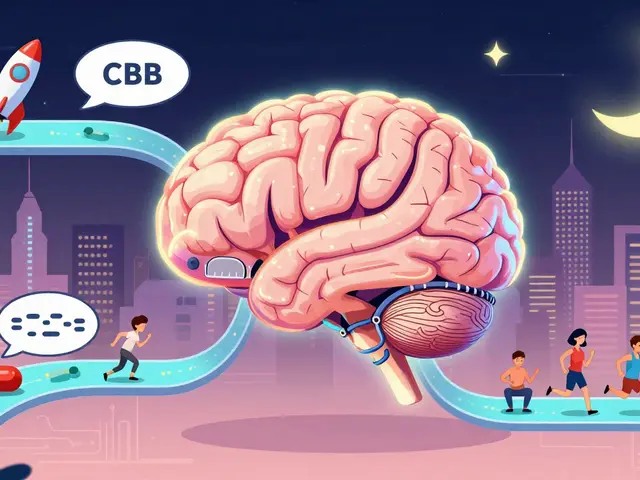Sleep disturbances: simple ways to sleep better tonight
Can’t fall asleep or you wake up at 3 a.m.? Sleep disturbances are common, but you don’t have to accept bad sleep as normal. This guide explains what often causes sleep problems, quick things you can try tonight, and when it’s time to see a professional.
What causes sleep disturbances?
There’s rarely one single cause. Common triggers include stress and anxiety, pain, caffeine or alcohol late in the day, irregular sleep schedule, shift work, and some medications (stimulants, certain antidepressants). Medical issues like sleep apnea, restless legs, thyroid problems, or chronic pain also disrupt sleep. Identifying the main cause makes fixing it a lot easier.
If your sleep started after a life change (new job, new baby, moving), try addressing that trigger first. If sleep problems began after a new medicine, ask your prescriber if the drug could be the cause.
Quick, practical fixes you can try tonight
Start with the basics—small changes often give fast wins.
- Set a consistent sleep time: Go to bed and wake up at the same time every day, even on weekends.
- Wind down for 30–60 minutes: Turn off screens, dim lights, read, or do gentle stretches.
- Watch caffeine and alcohol: Skip caffeine after mid-afternoon and avoid heavy drinking close to bed; both fragment sleep.
- Create a sleep-friendly room: Cool, dark, and quiet is best—consider blackout curtains or a white noise app.
- Use the bed only for sleep and sex: Don’t make it a daytime work or TV spot.
If you wake up at night, avoid checking your phone. Get up, move to another room, do a quiet activity until you feel sleepy, then return to bed. That helps stop your brain from linking bed with frustration.
For short-term help, melatonin can ease falling asleep, especially for jet lag or shift changes. Over-the-counter antihistamines (diphenhydramine) may help sometimes but often cause morning grogginess and aren’t good long-term. Prescription sleep meds (zolpidem, eszopiclone) work for some people but carry risks and should be used briefly under medical guidance. Cognitive behavioral therapy for insomnia (CBT-I) is the most effective long-term treatment and beats pills for lasting change.
Watch for red flags: loud snoring with pauses, breathing stops, very restless legs, sudden daytime sleep attacks, or insomnia with severe mood changes. Those signs mean see a doctor or sleep specialist. Also get help if poor sleep lasts more than a month, affects daily function, or if you’re thinking about self-harm.
Small, consistent steps usually fix many sleep disturbances. If your sleep isn’t improving, discuss it with your healthcare provider—there are safe treatments and tests that can help find the cause and get you sleeping again.
The Link Between Hepatic Encephalopathy and Sleep Disturbances
As a blogger, I recently came across some fascinating information about the link between hepatic encephalopathy and sleep disturbances. Hepatic encephalopathy is a neurological disorder that occurs in patients with liver dysfunction, and it seems that it can significantly impact one's sleep patterns. Studies have shown that patients with this condition often experience insomnia, sleep apnea, and daytime sleepiness. This connection is important to understand, as proper sleep is crucial for overall health and well-being. So, if you or someone you know is struggling with liver disease, it's worth discussing potential sleep issues with a healthcare professional to ensure the best possible care.
Latest Posts
-

Sensitive Skin Care: Fragrance-Free Routines and How to Test Products Safely
-

Antitrust Issues in Generic Substitution: How Big Pharma Blocks Cheaper Drugs
-

Depression Management: Medications, Therapy, and Lifestyle Changes That Work
-

Switching Medications: Proven Strategies to Reduce Side Effects and Avoid Withdrawal
-
How to Use Yoga for Fluid Retention Relief

14